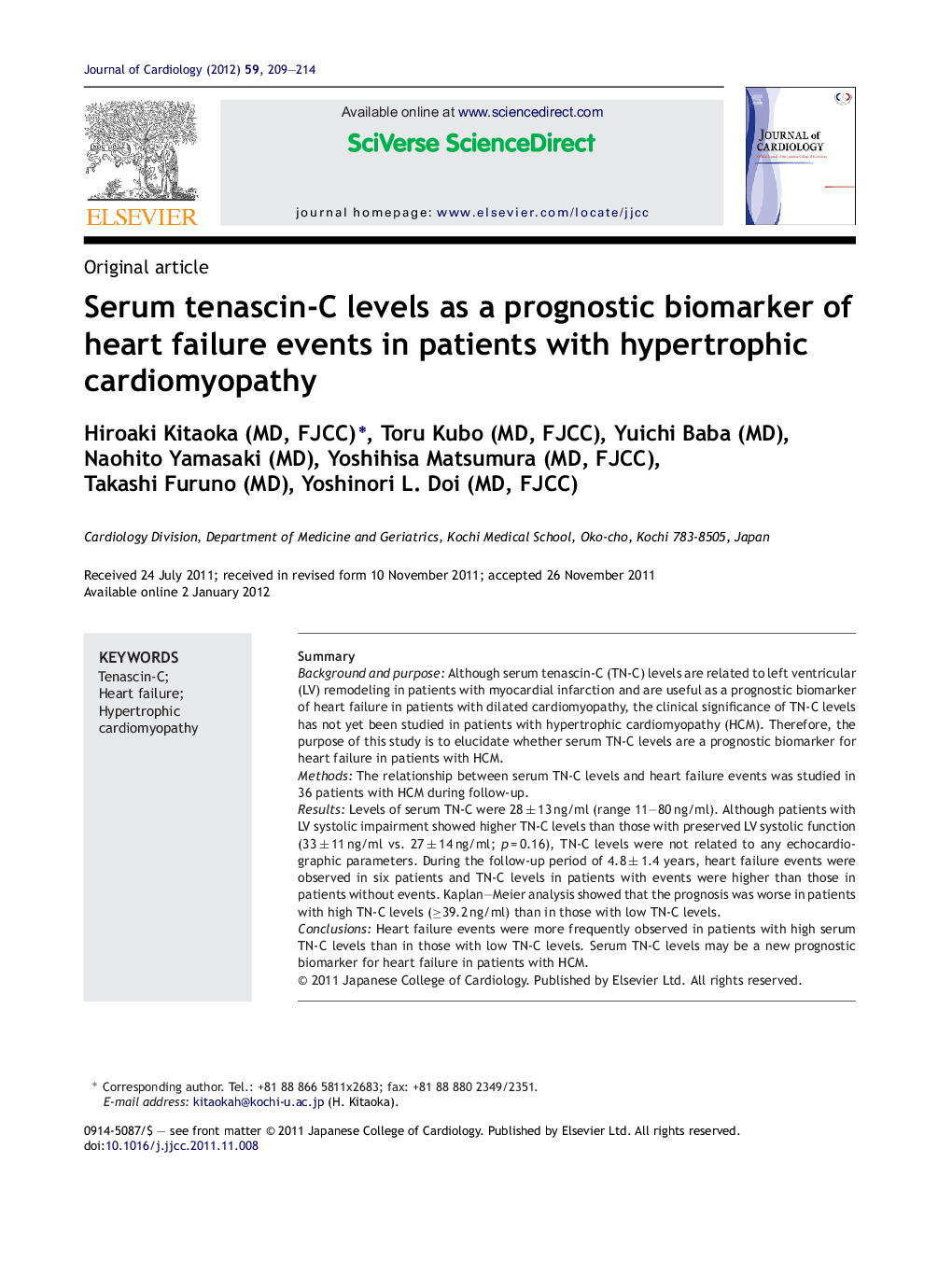| Article ID | Journal | Published Year | Pages | File Type |
|---|---|---|---|---|
| 2963244 | Journal of Cardiology | 2012 | 6 Pages |
SummaryBackground and purposeAlthough serum tenascin-C (TN-C) levels are related to left ventricular (LV) remodeling in patients with myocardial infarction and are useful as a prognostic biomarker of heart failure in patients with dilated cardiomyopathy, the clinical significance of TN-C levels has not yet been studied in patients with hypertrophic cardiomyopathy (HCM). Therefore, the purpose of this study is to elucidate whether serum TN-C levels are a prognostic biomarker for heart failure in patients with HCM.MethodsThe relationship between serum TN-C levels and heart failure events was studied in 36 patients with HCM during follow-up.ResultsLevels of serum TN-C were 28 ± 13 ng/ml (range 11–80 ng/ml). Although patients with LV systolic impairment showed higher TN-C levels than those with preserved LV systolic function (33 ± 11 ng/ml vs. 27 ± 14 ng/ml; p = 0.16), TN-C levels were not related to any echocardiographic parameters. During the follow-up period of 4.8 ± 1.4 years, heart failure events were observed in six patients and TN-C levels in patients with events were higher than those in patients without events. Kaplan–Meier analysis showed that the prognosis was worse in patients with high TN-C levels (≥39.2 ng/ml) than in those with low TN-C levels.ConclusionsHeart failure events were more frequently observed in patients with high serum TN-C levels than in those with low TN-C levels. Serum TN-C levels may be a new prognostic biomarker for heart failure in patients with HCM.
